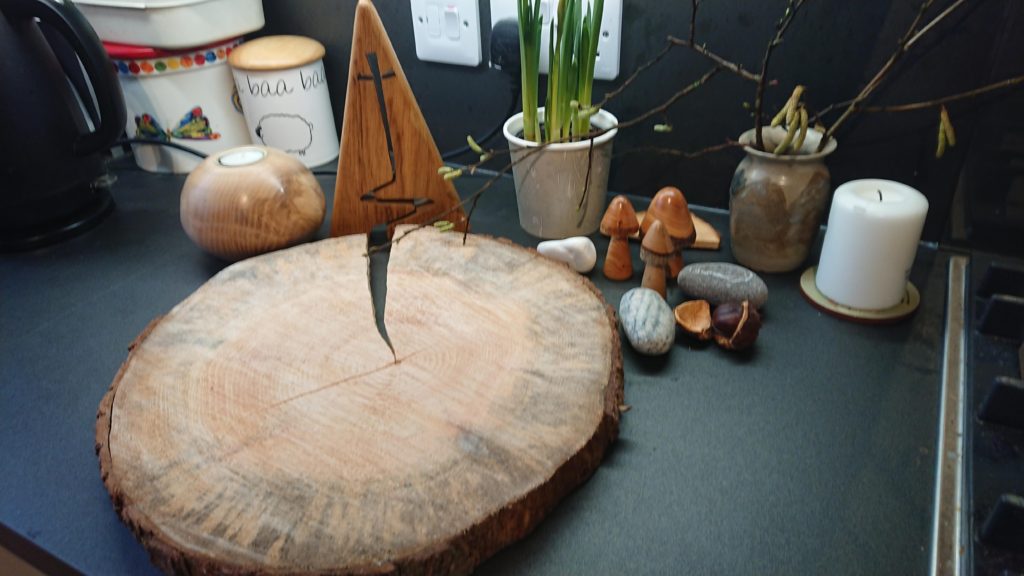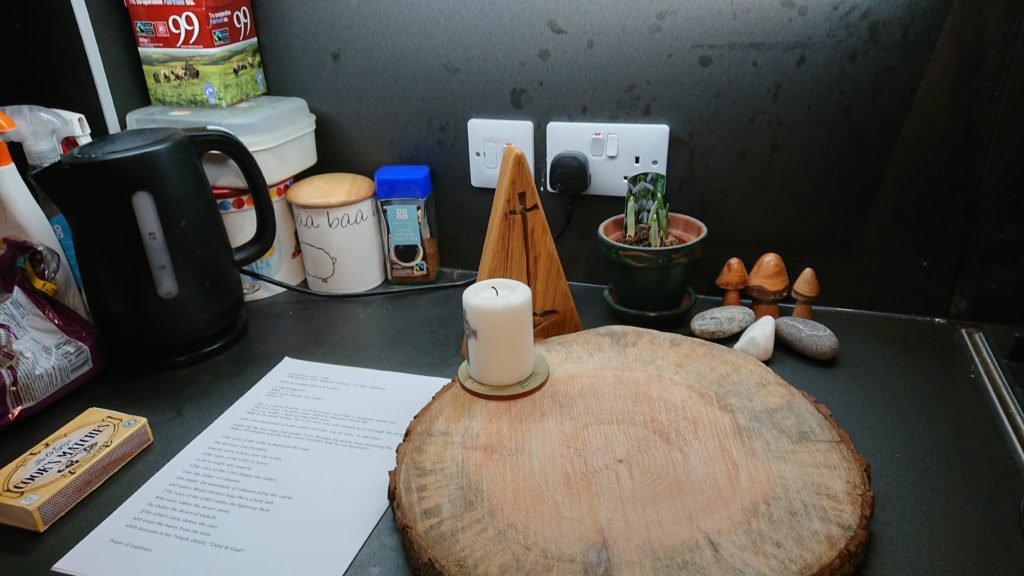After last evening’s Communion Service with LCSB on line, here are the prayers I used for those who want to see them again.
Welcome
This is a piece of wood, cut from a tree, much like a carpenter would use.
This is a cross, cut from a tree, where a carpenter would die.
This is a candle, a light to keep faith alive:
faith in the world turner, the cross wise one, who speaks to us through the wood.

Prayer of delight
God of all we rejoice at your delight!
At your delight in the world you created,
at your delight in Jesus, your Son, baptised and ready to go,
at your delight in us, affirmed and ready to follow him.
Invitation to communion
Birthed in a manger, a wooden box where cattle feed.
Brought up in a workshop, a place of wood where he learnt a trade.
Brought out of the River Jordan, baptised by water and the Spirit,
Jesus, the cross wise one, invites you all to his table.(
Prayer after communion
Companion Christ, True Vine, we have eaten heavenly bread, we have drunk the wine of promise.
We commit ourselves to a life of kinship.
Sustain us on the road that in partnership with the poor
we may travel on to eat and drink in justice and peace in the vineyard of the Vinegrower.
Blessing of the trees in the woodland

A
blessing from the larch and the beech;
May they shelter you in
their season.
A blessing from the hawthorn and the willow:
May
they delight you in their season.
A blessing from the hazel
and the oak;
May they supply you in their season.
May you
ever be sheltered, delighted and supplied in this holy place,
By
the power of the Holy Three.
Great
God,
who made the darkness for rest,
Surround us this night
So
that our words, our thoughts, our breath,
May rest in you.
Janet Lees for LCSB 10.01.2021

